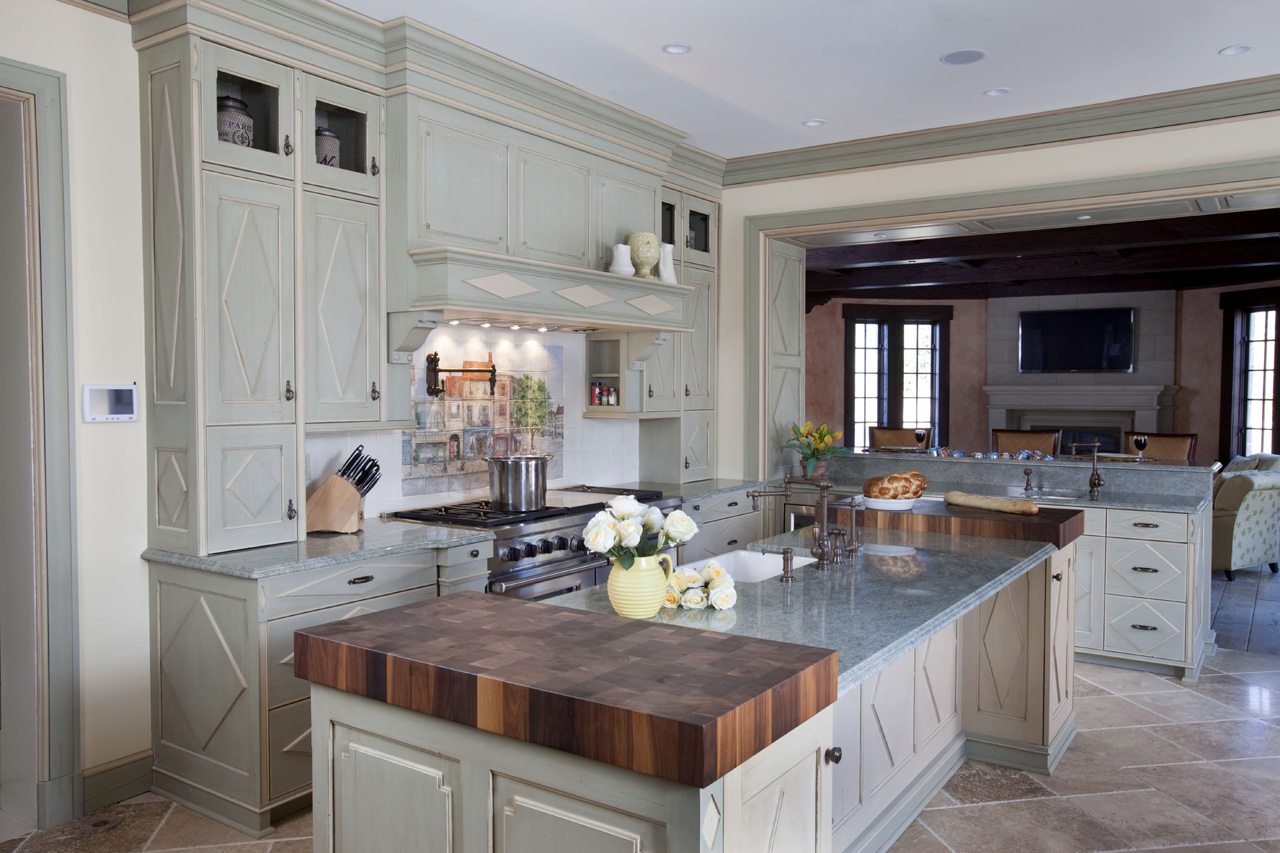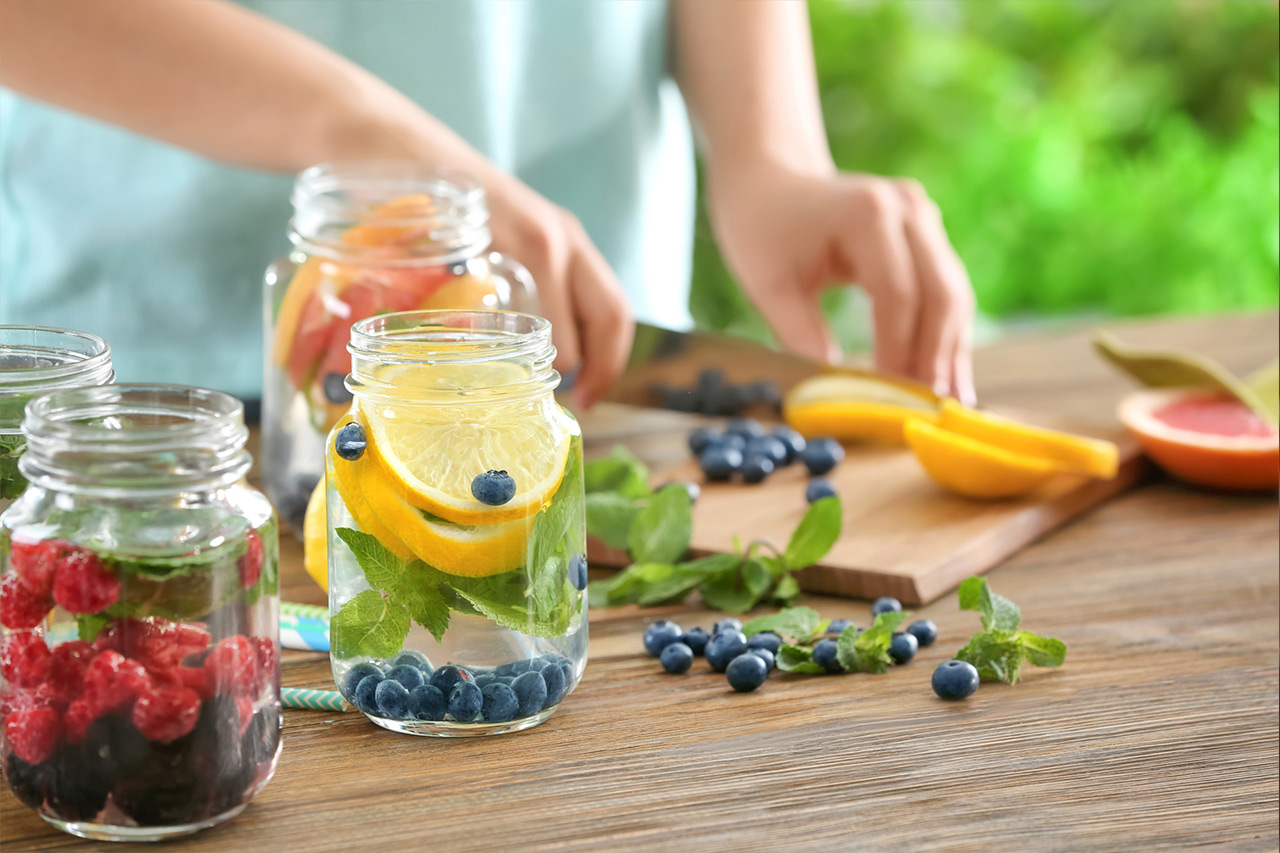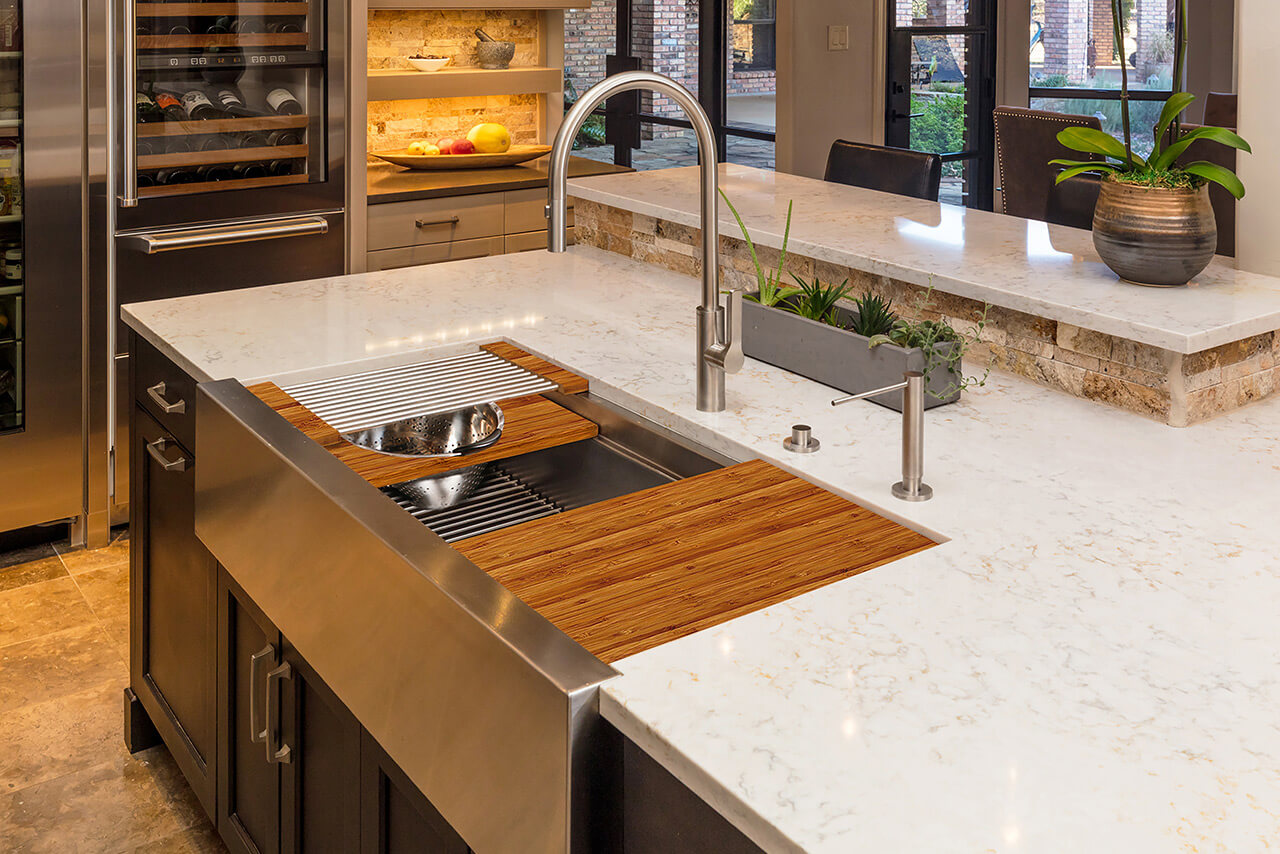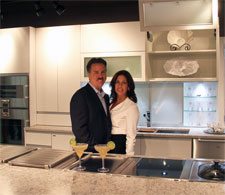
Cutting boards are so beautiful these days they look like art. I don’t know how anyone makes that first cut into these gorgeous board. We outfitted this kitchen with beautiful chopping blocks on each side of the island. The kitchen was featured in Adam Sandlers movie the Cobbler. See it here. Countertops like these are coated with edible food grade oil finish, safe for direct chopping.
Here are some tips about keeping your new cutting boards safe and sanitized.
Wood vs. Plastic:
Now, I could write an extensive paper (I’ll spare you) with all the controversial research regarding which is safer. For every “pro-wood” study there appears to be an equivalent “pro-plastic” one. When choosing, I suggest you read the studies that are out there and decide for yourself. Personally, I use both and have several different cutting boards for different purposes. See my sources below for studies that discuss the pros and cons of both.
Safety Tips:
Consider using separate cutting boards for each type of food you cut. This will prevent cross contamination. Replace boards when they get dingy or develop deep knife grooves that are hard to clean. Restaurant supply houses make different colored cutting boards. Green boards for vegetables and red boards for meats is a good visual reminder of what you should be cutting on that board.
Purchasing Tips:
When you buy your cutting boards, consider the size of your sink. You want to be sure it will fit well enough for you to clean it — another pro for having an oversized sink like The Galley. It is nice to have a collection of cutting boards in several sizes for serving as well. Use a small board for serving cheese or a large board for sliced meats and vegetables. It is also nice to keep a small board next to the sink for that quick piece of fruit you want to slice up.
Cleaning Your Cutting Boards:
- Scrape excess food
- Scrub both sides with soap and hot water in the sink. In addition, I sometimes use a half of lemon and rub across the entire surface or drizzle with some white vinegar.
- Note regarding dishwasher use: Nonporous acrylic, glass, or plastic boards can be run through a dishwasher. I know it is not advisable, but I even put some of my smaller solid wood boards in there and have had no problems. If you try this, be careful with your wood boards; the heat might ruin them. Also be careful with laminated boards; they may split or crack in the dishwasher. Be sure to read the care instructions that came with the board. Some specifically say they are NOT dishwasher safe.
- Allow plastic cutting boards to air dry and pat dry wooden cutting boards with paper towels (not dishtowels because they probably have bacteria on them). On butcherblock use premium butcherblock oil or any food grade mineral oil to keep its sheen.
Sanitizing Your Cutting Boards:
There are several ways to sanitize your boards. Here are a few options:
- Sanitize with a mixture of 1 tablespoon unscented liquid chlorine bleach per 1 gallon of water. Let sit several minutes, rinse, and then wipe. Let air dry or pat with paper towels.
- Sanitize with straight white vinegar, or a mixture of 1 part vinegar to 5 parts water. Let it sit for a few minutes, then rinse and pat dry. You can even wipe the board down with a paper towel moistened with 3% hydrogen peroxide (3% hydrogen peroxide for extra protection.
- Remove stains by wetting the cutting board and covering it with a sprinkling of kosher salt. Let it sit several hours then wash and rinse. While washing you can scrub with a little more salt to remove stains and a bit of lemon to remove odors.
- Remove odors: In addition to lemon, you can scrub with baking soda and let sit for 5-10 minutes. Also use lavender essential oil (8-10 drops) in a water bottle and shake then spray for fresh scent.
So… when was the last time you sanitized your boards? Be sure to check out our Galley Sink Workstations! The cutting board is built into the sliding system! You can see them at our showroom up close when you visit. More info about our Galley Workstation here.
Sources:
USDA Food Safety & Inspection Service
Cutting Boards and Safety
Plastic and Wooden Cutting Boards, Dean O. Cliver,Ph.D




